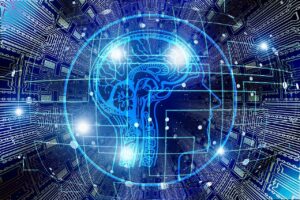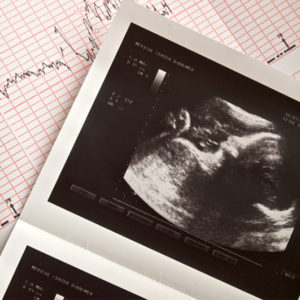The topic of artificial intelligence permeates the media and online discussions. Soon there will be no way to escape being impacted by AI in some form or fashion.
Like most things there are good and bad aspects to new technology.
AI is no exception. AI is already impacting pregnancy care.
The Good

Maintaining the health of a pregnant woman is essential for both patients – the mother and her child. AI is being used effectively to aid treatment options.
Studies have shown promise using AI to direct physicians’ treatment of ectopic pregnancies, preeclampsia, and the prediction of gestational diabetes.
The benefits are potentially endless. A study published in the Journal of the American Heart Association, titled Predicting the Risk of Adverse Events in Pregnant Women With Congenital Heart Disease is an example. Researchers developed two prediction models for mothers and their babies to foresee the risk of adverse events during pregnancy. As a result, clinicians will be able to customize treatment plans for women with this condition.
Northwell Health rolled out AI-driven chatbots that assist mothers in real time. The chatbots are available to obstetrics practices throughout its system. It identifies urgent situations and ensures timely help for women both during and after pregnancy. There are also weekly dialogs based on where she is during pregnancy. The developers say the chatbots will notice sublet changes earlier than traditional methods of care.
Penn State and Jacaranda Health launched a program to assist mothers in Kenya on the continent of Africa. Called TRIage for Mothers, it generates flagged messages for cases that may need the attention of help-desk agents who evaluate each case and if warranted, intervenes with immediate medical attention.
 Sonio Detect, a company based in Paris, developed the first AI-powered ultrasound approved by the FDA. While in testing, Sonio Detect scanned more than 70,000 ultrasound images and identified over 300 potential anomalies.
Sonio Detect, a company based in Paris, developed the first AI-powered ultrasound approved by the FDA. While in testing, Sonio Detect scanned more than 70,000 ultrasound images and identified over 300 potential anomalies.
According to the CDC, approximately 10 percent of America’s babies are born prior to 37 weeks of pregnancy. Researchers from Washington University St. Louis, Missouri have developed a deep learning model to predict premature birth as early as 31 weeks by analyzing electrical activity in the mother’s uterus.
The Bad
Privacy is a top concern for those who use AI. Technology expert, Mark Lippett says, “AI has an insatiable desire for data, both from the past and from the present. What we say and do will become increasingly ‘on the record,’ unless consumers are educated to make informed decisions about where AI is deployed.”
AI is fallible and accountability can be elusive. Reliance on AI in a medical setting can have grave consequences. It may not be apparent who is at fault, particularly when the doctor had no role in developing the algorithm.
The Deadly

In vitro fertilization has established itself as a significant business, charging over $12,000 per session. AIVF is a technology company addressing reproduction, based in Tel Aviv, Israel. It has developed AI software that evaluates human embryos before being chosen for implantation. Heartless algorithms assign a numeric score to each human embryo with potential lethal ramifications for those who don’t rate high enough.
AI lacks transparency and is biased. AI models reflect the biases of those who program them. That can be deadly when AI reveals a potential disability in an unborn child with a default of abortion. We already have a crisis of physicians who advise, coerce or even pressure women into having an abortion when faced with a pregnancy challenge like a diagnosis of Down syndrome.
Planned Parenthood is using AI to target America’s children under the disguise of sharing “sexual health and education.” But we know that with this abortion conglomerate, all roads lead to abortion on demand throughout pregnancy with taxpayer funding.
Artificial intelligence has the potential to fundamentally change our lives. An overstatement? Maybe. But likely not.
Things that impact our daily lives today were 30 years ago considered the notions of science fiction.
Many of AI’s offerings are a positive benefit to mankind. Yet we are also aware that AI has a dark underbelly that many are just now coming to grips with. By educating ourselves and those around us we can collectively make decisions that help nurture and protect innocent human life.
Defending Life,
Leave a Reply